At Vedanta, our sustainability approach is driven by the overarching desire to address the expectations of our stakeholders, while delivering strong business performance. As one of the world's leading diversified natural resource companies with business operations in multiple geographies spanning continents, we are mindful of our commitments to society, our people and the environment.
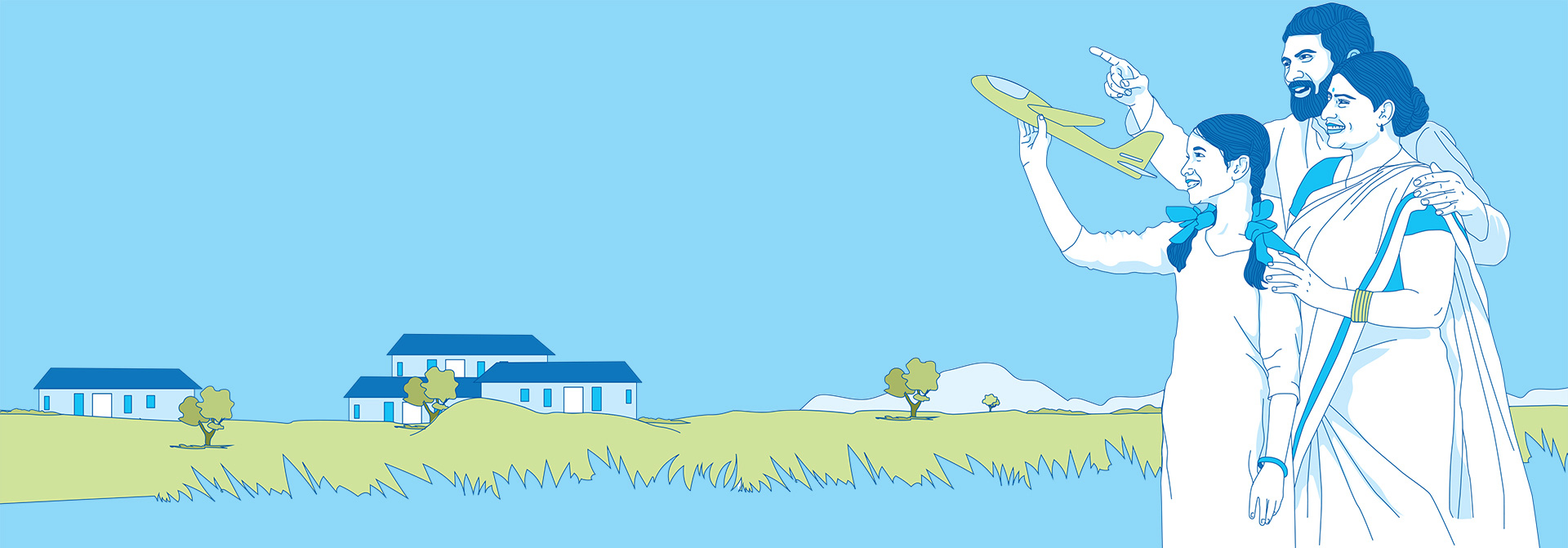
KEY STATISTICS:
CSR programme beneficiaries (FY2020: 3.26 million)
Carbon footprint (FY2020: 59 million mt)
in FY2021 (FY2020: 7)
Energy conserved (FY2020: 1.75 million GJ)
Community investment (FY2020: `296 crore)
Water recycling rate (FY2020: 29%)
Our vision is to become a developer of choice in the areas of our operations and create long-term value for all our stakeholders. To deliver on this promise, we have developed the Vedanta Sustainability Framework that enables our business units to embed sustainable business principles into their systems and procedures.
VEDANTA SUSTAINABILITY FRAMEWORK
Developed in line with global standards from international bodies such as International Council on Mining and Metals (ICMM), International Finance Corporation (IFC), Organisation for Economic Co-operation and Development (OECD), United Nations Global Compact (UNGC) and SDGs, the Framework comprises several policies, standards and guidance notes which facilitate its execution.
Policies
Biodiversity, Energy & Carbon, HIV-AIDS, Human Rights, Social, Supplier & Contractor Sustainability Management, Water
Standards & Guidance Notes
Robust monitoring
VEDANTA SUSTAINABILITY ASSURANCE PROCESS (VSAP)
VSAP is our sustainability risk assurance tool, which is used to assess the compliance of all our businesses with the Vedanta Sustainability Framework. This meticulously developed assurance process helps embed sustainable development into every activity that we undertake.
VSAP is an annual process with clear tracking of results by the Sustainability Committee, and the Executive Committee, which in turn reports to the Board.
OUR KEY STAKEHOLDERS
At Vedanta, we engage with several stakeholder groups while operating our business and creating measurable social impact. The list below summarises the key stakeholder groups which have a bearing on our operations.
VEDANTA
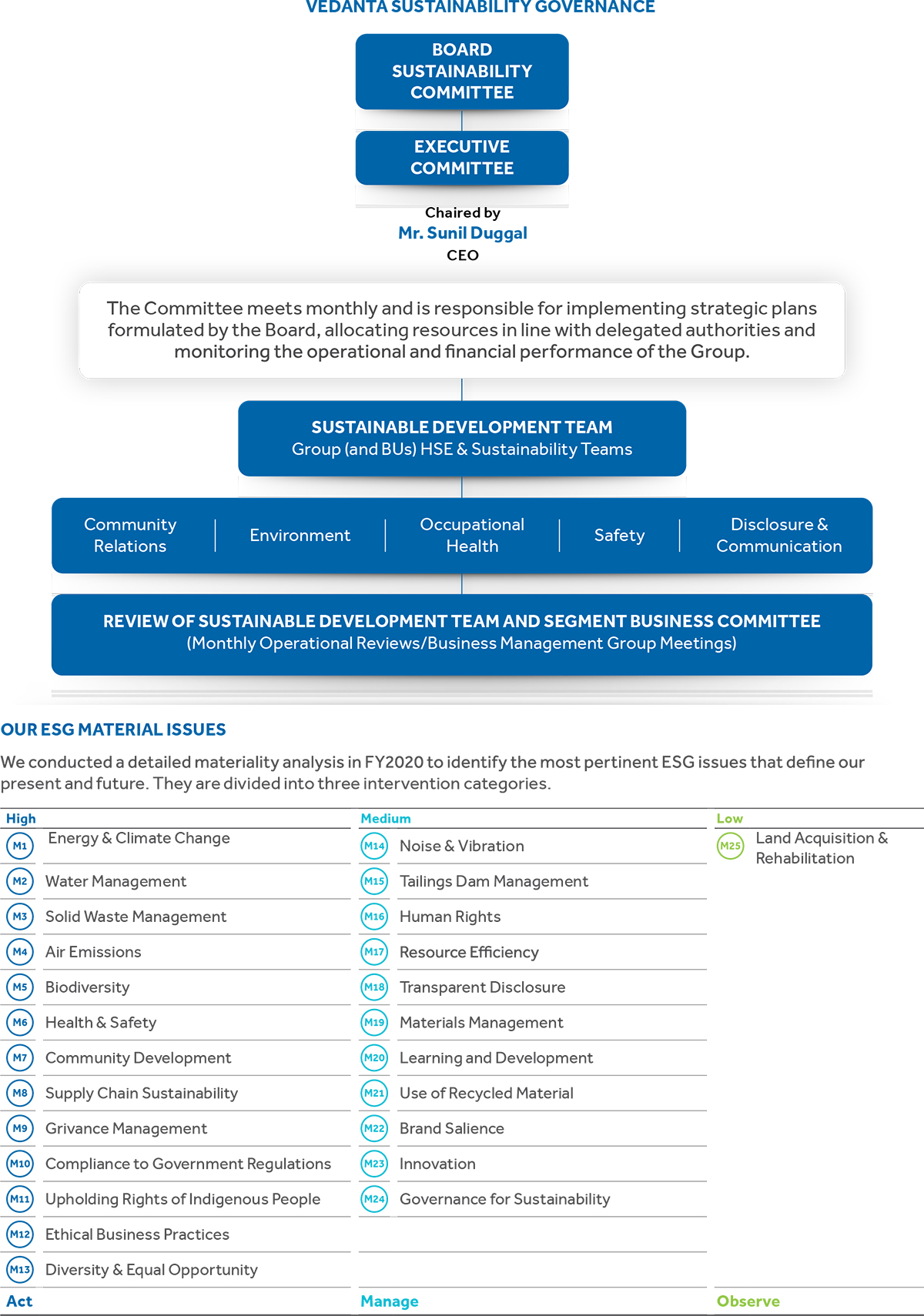
Our environmental approach is based on improving our existing processes and systems and proactively adopting more efficient processes for new operations. We have developed specific objectives and targets as a part of our environmental commitment and review our performance annually against these priorities.

 Energy management & climate change
Energy management & climate changeAs a large consumer of fossil-fuel based power, we recognise the climate-related risks associated with our business activities. We understand the implications of our energy consumption, both in terms of its cost to the natural environment as well as cost to the operations; and are committed to meet our energy demands, while limiting our carbon emissions. We remain fully supportive of the outcomes of the Paris Agreement and have taken on carbon reduction targets in alignment with the Nationally Determined Contributions (NDC) of the Government of India.
Targets & strategies
We had aligned ourselves with the Nationally Determined Contributions (NDC) of the Government of India and had committed to reduce our GHG emissions intensity by 20% by 2025 from a 2012 baseline.
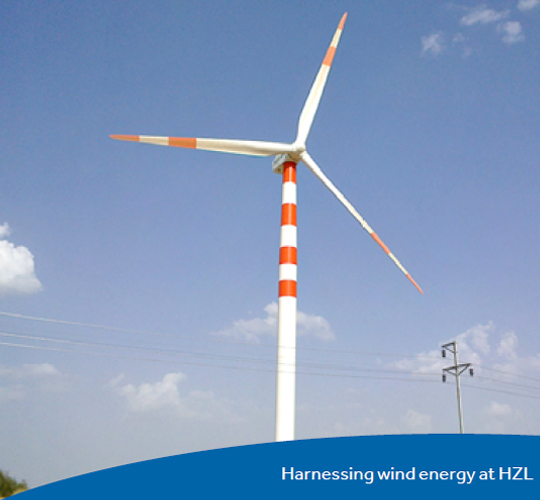
Till FY2021, we have achieved ~13.6 million tonnes of avoided GHG emissions since 2012. Our long-term target is to substantially de-carbonise by 2050 and we are currently on the path to develop a plan.
Performance
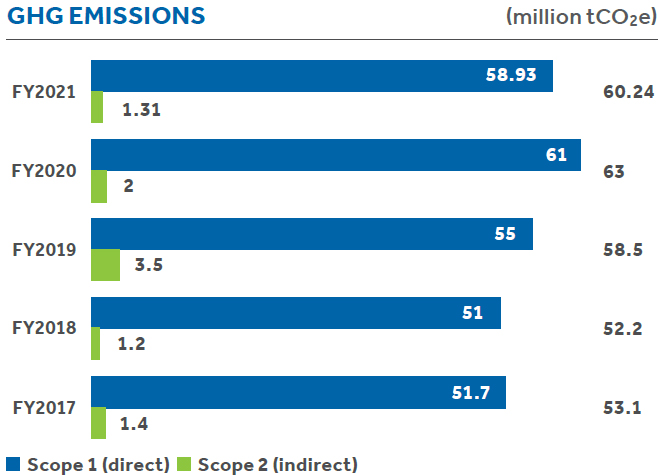
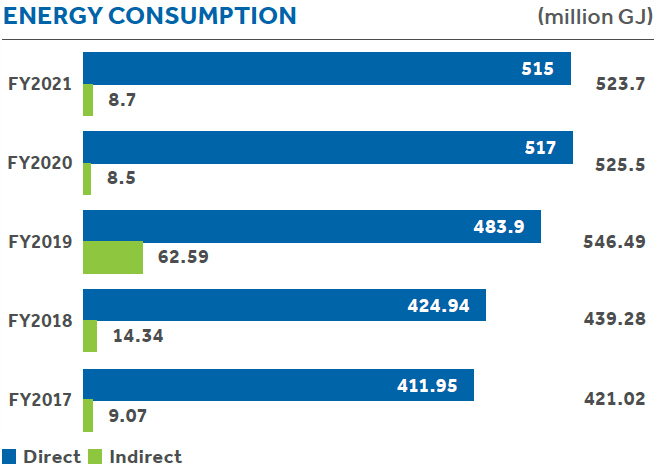
We calculate and report Greenhouse Gas (GHG) inventory i.e. Scope 1 (process emissions and other direct emissions) and Scope 2 (purchased electricity) as defined under the World Business Council for Sustainable Development (WBCSD) and World Resource Institute (WRI) GHG Protocol.
UN SDGs and targets linkage

Goal: SDG 12 –
Responsible production
and consumption
Target: 12.2 – Achieve sustainable management and efficient use of natural resources

Goal: SDG 13 –
Climate actionn
Target: 13.2 - Integrate climate change measures into strategies, polices, and planning
 Waste and tailings
management
Waste and tailings
managementWaste management in a safe and responsible manner is a crucial priority for our businesses. The hazardous wastes comprise used/spent oil, waste refractories, spent pot lining and residual sludge from smelters. On the other hand, high-volume and low-toxicity wastes constitute the non-hazardous wastes. These are fly ash (from captive and merchant power plants), red mud (aluminium refinery waste), jarofix (from zinc smelting), slag, lime grit (process residues from smelters and aluminium refineries) and phosphogypsum (phosphoric acid plant).
In FY2021, we recycled 94% of the high-volume-low-effect wastes such as fly ash, slag, and jarosite. For the 2nd year in a row, we could reutilise more than 100% of the fly ash generated in the year, by recycling legacy waste.
Tailings dam management
Integral to mining operations, tailings dams (if breached)
can cause significant damage to the environment and to
the neighbouring communities. The Company oversees
18 active and five inactive, and one closed tailings
management facilities (TMFs). Our principal concern is to
ensure the safety of the people who live downstream from
our dams. All but one1 tailings facilities have undergone an
independent audit and assessment in the last 12 months by
Golder Associates.
We have also introduced a tailings dam management standard to ensure that our Group companies adhere to standard practices while managing their dam structures.
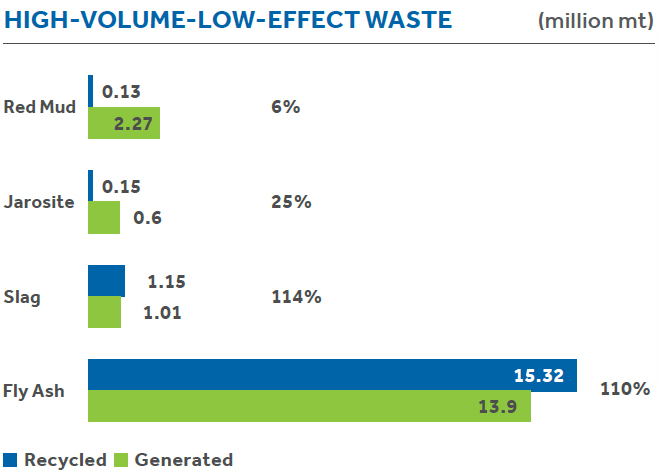
UN SDGs and targets linkage

Goal: SDG 12 –
Responsible production
and consumption
Target 12.5 - Substantially reduce waste generation through prevention, reduction, recycling and reuse
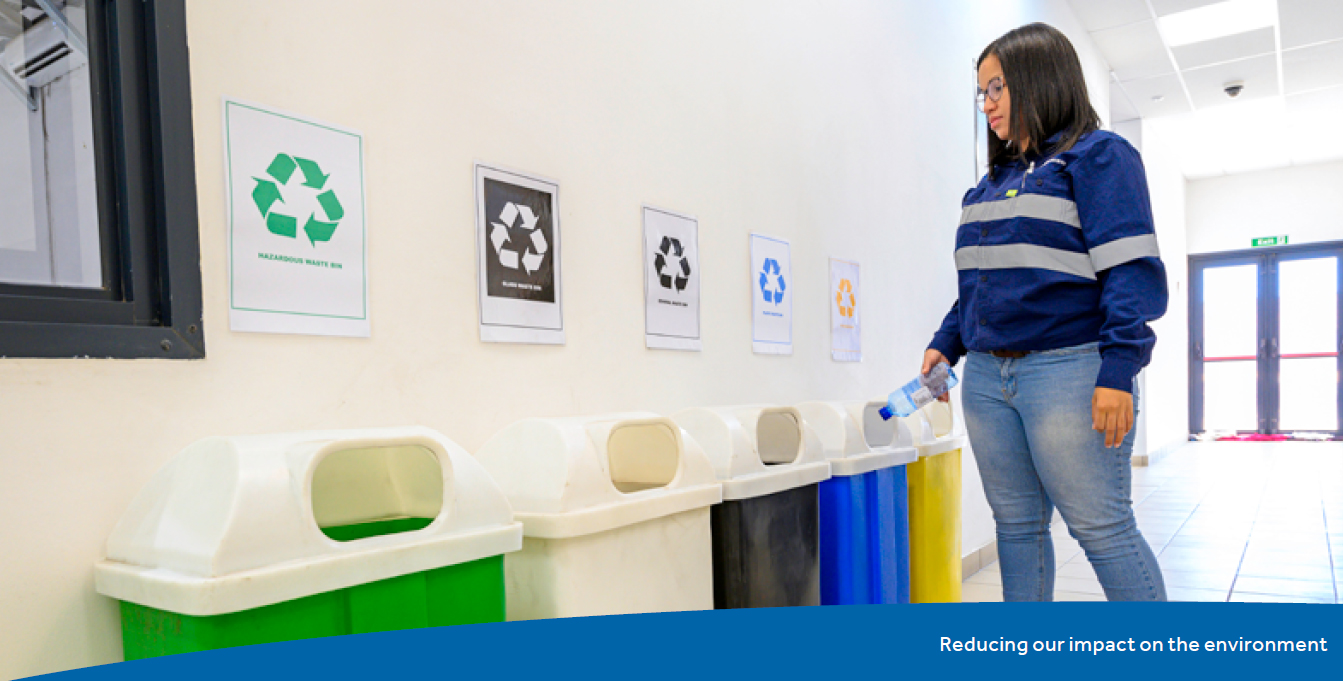
1 Our facility at Skorpion Zinc underwent an audit in 2016
 Water
management
Water
managementWhile access to a steady water supply is critical for mining and smelting operations, host communities and the natural ecosystem and biodiversity of the area also rely on water. Hence, the responsible use of this shared resource is a critical imperative for us and for all our stakeholders.
Our Group water policy administered through our water management standard is in place and our approach is to keep it as a core factor while making decisions, either for a new project or an existing one. Water-screening assessment to identify sensitive water resources, aquatic habitats and any known or suspected water resource constraints in proximity to each operation, is a must and has been conducted by all our businesses. We have steadily increased our water recycling rate in the last three years.
Performance
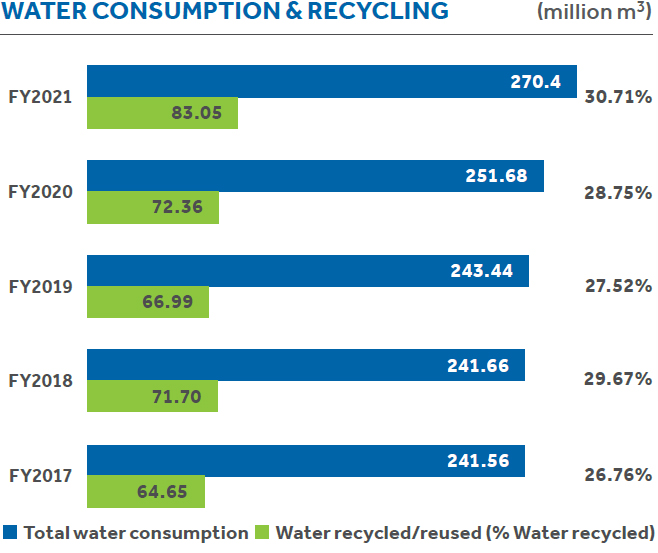
UN SDGs and targets linkage

Goal: SDG 6 –
Clean water and sanitation for all
Target: 6.4 – Increase water use efficiency and ensure sustainable withdrawals

Goal: SDG 15 –
Life on land
Target: 15.9 - Introduce biodiversity management and planning into development processes
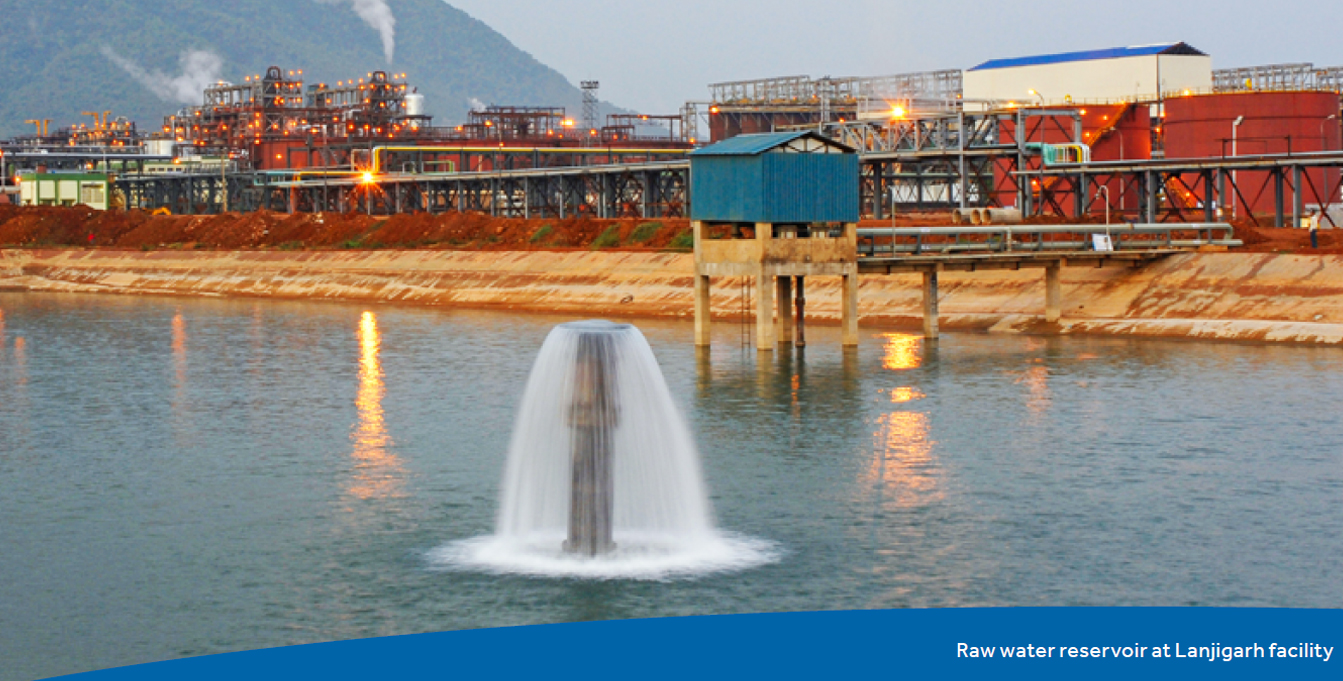
 Air
emissions
Air
emissionsThe impact of emissions on employees, communities and the natural surroundings are closely observed, evaluated and documented for corrective actions and future reference. We use best-in-class technologies to reduce to the minimum any particulate release.
The release of Suspended Particulate Matter (SPM), SOx and NOx are monitored as a part of our consistent efforts to keep the ambient air quality safe. Lead emissions in our zinc operations, fluoride emissions in our copper and aluminium operations, and Polycyclic Aromatic Hydrocarbons (PAHs) in our aluminium operations are also checked regularly to adhere to our Environmental Management Standard.
Performance
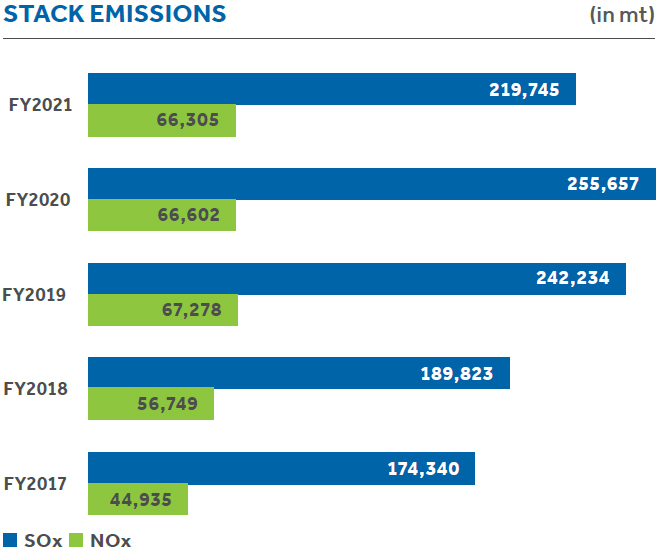
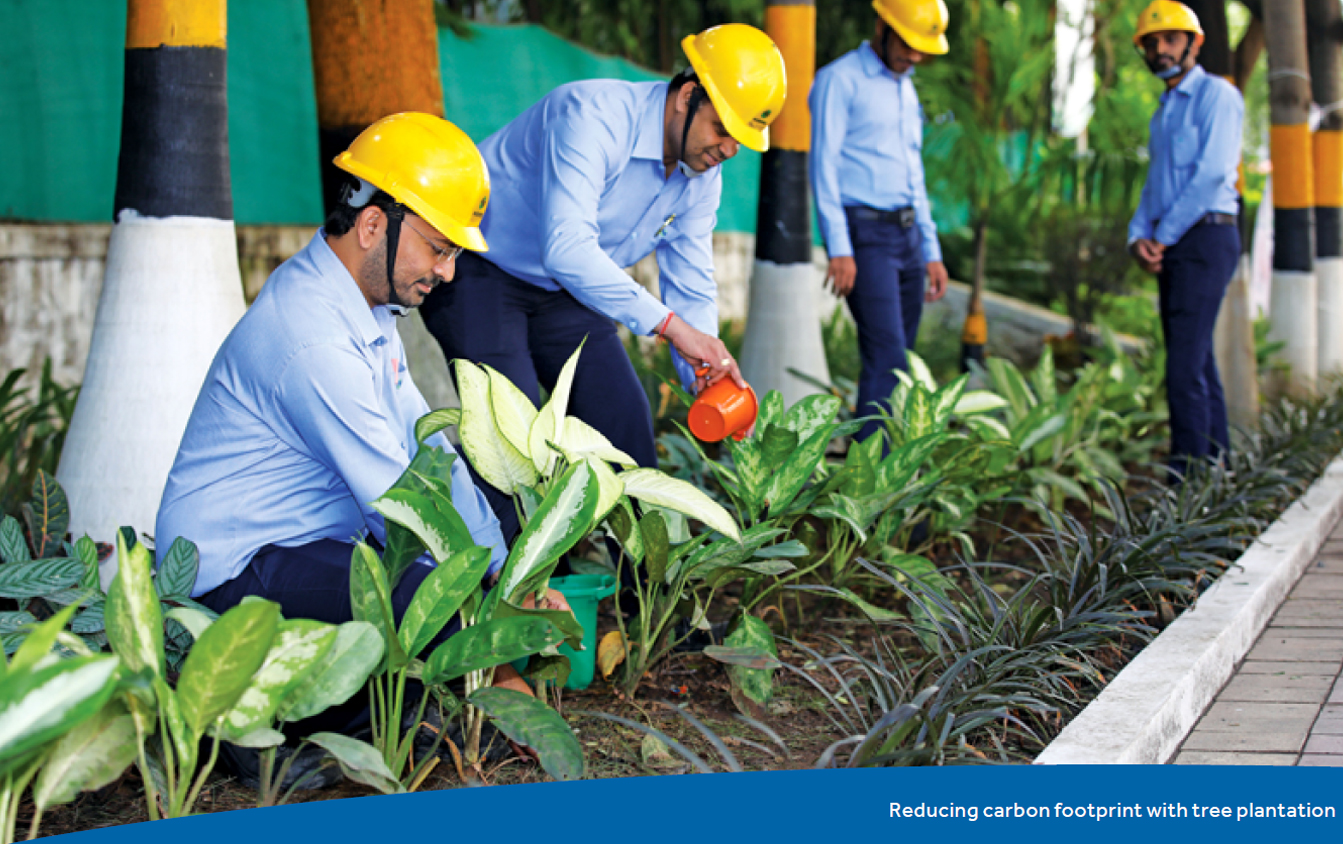
Responsible tailings utilisation: all round benefits
One of the key aspects of mine sustainability is its post-mining restoration. Typically, to maintain structural stability of the mines, miners undertake the process of backfilling material into underground voids created by their activity. Backfilling is usually conducted using cementitious material such as concrete. However, this can prove to be a costly affair, with larger negative environmental footprint.
At Hindustan Zinc, Vedanta’s zinc division, we took up an innovative and contemporary approach to backfilling. In exploring economically viable mixtures to execute backfilling, we found an opportunity to use mine tailings (leftover material after ore separation). This played out to be beneficial in more ways than one, where we could utilise waste material to fill the void, offsetting the need for new disposal land for tailings. It resulted in economic benefits, reduction of cycle time, generating employment and above all, environmental utility as industrial waste could find alternative and sustainable use.
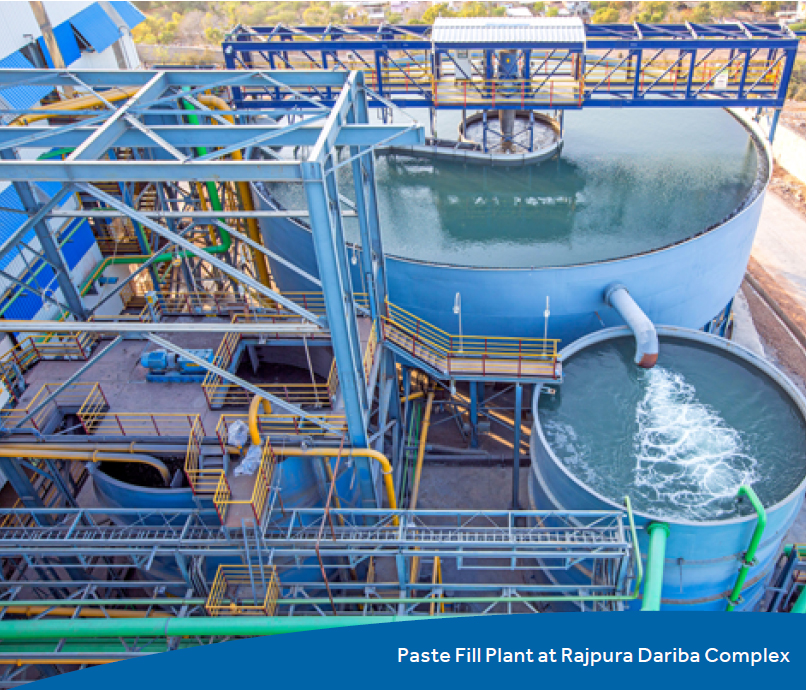
Infrastructure, technology
and process
We executed this by following
the paste back fill system, setting
up two paste fill plants each in
Sindesar Khurd (SK) and Rampura
Agucha (RA) mines and one in
the Zawar mine. In fact, HZL is
credited with the installation of
the first paste fill plant in India.
These plants help in thickening
the mill tailings, mixing with the binder to prepare the paste
for the underground distribution
system. This process avoids any air
emissions, and we use recycled water
for the activity. The plants in SK have
a combined capacity of 6 mtpa, RA at
5 mtpa and Zawar at 1 mtpa.
Employing the latest technology with emergency preparedness plans and digitisation, this initiative dovetails into Vedanta’s policy of ‘Zero Harm, Zero Waste, Zero Discharge’.
Key outcomes
Since deployment, we have achieved
up to 39% of tailings utilisation,
continual reduction of cement
utilisation in the mix and 14% and
37% reduction in specific water
consumption in the RA and SK mines,
respectively. The capital cost of the
plant deployment has been paid back
within three months across locations
and has resulted in continuous profit
contribution.
Way forward
Going forward, we intend to
utilise 55% of tailings and
maximise fly ash utilisation
within the next one year. Focus
will be on increased backfilling
and safety.
Since 2018, we utilised 7.4 million tonnes of tailings in backfilling to avoid land disposal
Waste to Wealth, the Vedanta-Runaya Partnership
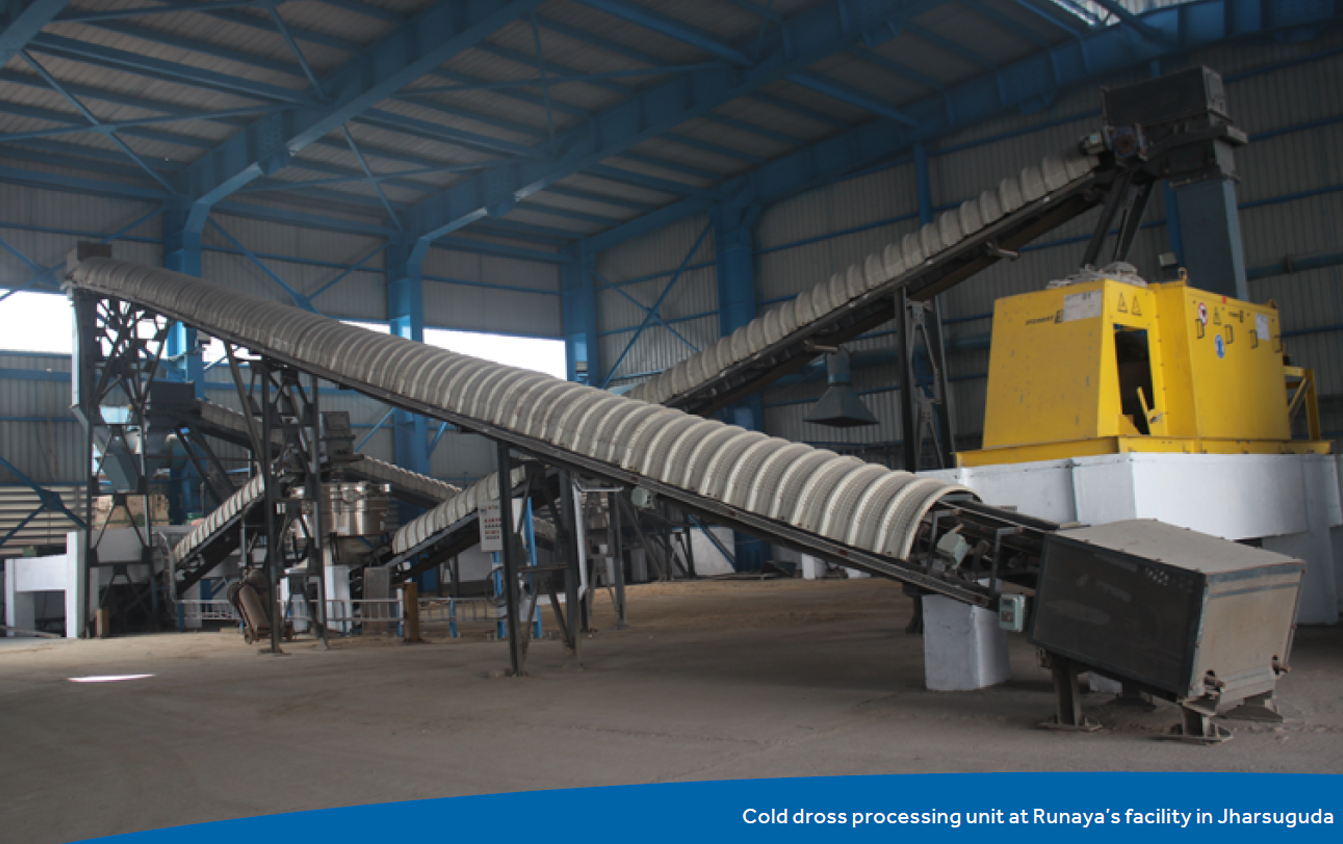
The world produces ~65 million tonnes of aluminium annually, but nearly 1 million tonne of the material is lost in the form of a by-product, aluminium dross. In India alone, about 60,000 tonnes of dross are produced every year. A classified hazardous waste, unscientific disposal of dross can have detrimental impacts on people and the environment. Currently, aluminium manufacturers send the waste to authorised recyclers who process the waste as per the CPCB guidelines, most of which end up in landfills.
A key aspect of dross is that it contains valuable material and compounds such as aluminium, aluminium nitrides and oxides, spinel, dimagnesium silicate, gupeiite, and sodium titanate. However, traditional recyclers were only able to recover limited amount of material from cold dross, with about 10% recovery rate being the industry benchmark.
At Vedanta’s facility in Jharsuguda, where India’s largest aluminium smelter is housed, we have turned this around in partnership with Runaya, who are licensed to use Taha’s patented dross technology. This ensures a significantly higher recovery rate, while also creating energy savings to the tune of 800,000 GJ and reducing CO2 emissions in excess of 260,000 tonnes, annually.
The advanced technological process presents four-fold benefits in the form of:
Runaya process
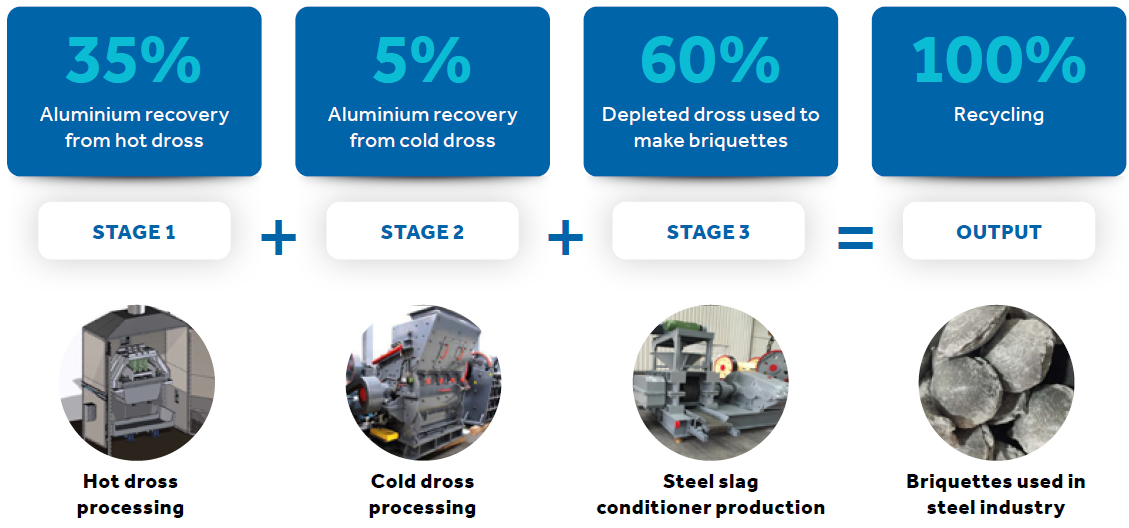
Depleted dross is used to manufacture briquettes that are used in secondary refining of steel, with significant reduction in power consumption and increased refractory life, thus improving sustainability. This circular, end-to-end approach to manufacturing and waste management aligns with our philosophy of ‘zero waste, zero discharge’, preventing landfills and ensuring better utilisation of waste material. Vedanta Jharsuguda is now a zero hazardous waste smelter, and with BALCO also announcing a partnership with Runaya, Vedanta is well on track to becoming the first zero hazardous waste company by FY2022.
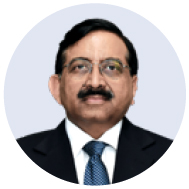
C.N. Singh, CEO,
Vedanta Ltd., Jharsuguda
Circularity in business is the need of the hour, and I’m proud of the ‘zero waste, zero discharge smelter’ feat our Jharsuguda team has achieved with Runaya’s support. Furthermore, Runaya has broken the mould in manufacturing with a highly diverse workforce, with nearly 50% women running the facility.
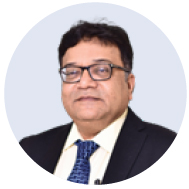
Abhijit Pati, CEO & Director,
BALCO
Vedanta’s ethos of ‘Zero Harm, Zero Waste and Zero Discharge’ continues to guide our environmental and social performance. We at BALCO are aligning our energies to stand tall towards ecosystem restoration and nurturing environment conservation efforts across all our areas of operations.

Annanya Agarwal,
CEO & Co-Founder, Runaya
Runaya is firmly committed to disrupting the linear economy model currently existing in the industry and ushering in a circular economy model by deploying cutting edge technology and innovation in the resources sector with focus on sustainability solutions. We are extremely proud to partner Vedanta Jharsuguda, India’s largest aluminium smelter, on their journey towards becoming a zero hazardous waste smelter.
We are the primary economic driver for the communities, where we operate. We shoulder this responsibility seriously and endeavour to fulfil our role in a manner that upholds the dignity of all our stakeholders and allows us to live up to our deeply cherished values.

The Vedanta Sustainability Framework and its associated standards and policies guide our work on social performance. In areas with indigenous populations, we are committed to following the principles of Free, Prior, Informed Consent (FPIC). With its genesis in the UN Declaration of Rights of Indigenous Peoples, it has been adopted as a best practice by the IFC and ICMM.
Our CSR Council, led by a senior business leader, and including CSR Heads and CSR Executives from all business units, meets every month and reviews the performance, spends and outcome of CSR programmes across units. Governed by our in-house CSR Policy and Sustainability Framework, the Council is responsible for governance, synergy and cross-learning across the Group’s CSR efforts.
The Board CSR Committee comprising senior Independent Directors, apart from providing strategic direction for CSR activities, also approves its plans and budgets, and reviews the progress of the initiatives.
SOCIAL PERFORMANCE & SOCIAL LICENCE TO OPERATE
Securing and retaining one’s social licence to operate is an outcome resulting from a company’s ability to garner the trust of the communities where it operates. Social performance frameworks are a good mechanism to measure, manage, and monitor this aspect of the business.
With a view to evaluate Vedanta’s social performance and impact, our senior leadership commissioned a study conducted by independent, globally renowned experts. This study spanned four sites, post which the reports were submitted to the Vedanta ExCo for its consideration. The reports made a clear case for a reboot of our social performance practices.
Based on the findings of the report, a Group-wide self-assessment drive with all units was conducted in FY2021. These led to the formation of Social Performance Steering Committees, with cross functional participation. The primary intent was to explain to our internal stakeholders that social performance and licence to operate go beyond the ambit of an organisation’s CSR activities and are closely related to its operations, HR practices and other activities.
This awareness initiative resulted in the formation of Social Performance Management Committees (SPMC) at each unit, development of standard and guidance note and its implementation through VSAP.
Following the success of the initiative, we are engaging the third-party consultants again to reinstate the project through the means of pilot to be conducted at two BUs – Lanjigarh and HZL. With the initial formalities complete along with senior management approvals, FY2022 will see these two BUs undertake pilot projects including social risk assessment and grievance mechanism tracking, among others.
Through such proactive and targeted initiatives, we are progressing towards our objective of becoming a developer of choice in our areas of operation.
Through proactive and targeted initiatives, we are progressing towards our objective of becoming a developer of choice in our areas of operation.
COMMUNITY EMPOWERMENT INITIATIVES
Community provides us the critical support to grow sustainably with all stakeholders. We have evolved one of the most elaborate community empowerment initiatives in our industry, and we regularly garner inputs and insights from stakeholders to improve our programmes.
In FY2021, ~`322.7 crore was spent to help communities elevate their quality of life through various interventions. An overview of these programmes is provided below.
Children’s well-being and education

COMMUNITY OUTREACH DURING COVID-19
In addition to the execution of our long-term social development agenda, we were also among the foremost Indian companies which stood in solidarity with the larger community during these challenging times. We have pledged `150 crore to help the country in its fight against the second wave of COVID-19 and we are undertaking several initiatives, as summarised below.
Health and medical support
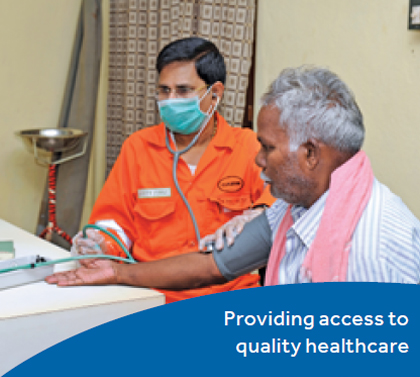
Oxygen supply
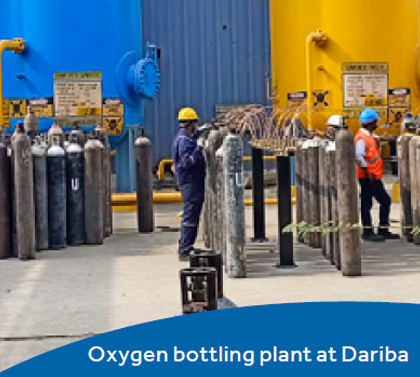
UN SDGs and target linkage

Goal: SDG 2 –
Zero Hunger
Target: 2.1 - End hunger and ensure access to safe, nutritious, and sufficient food, all year round
Target: 2.2 - End all forms of malnutrition

Goal: SDG 4 –
Ensure inclusive
and equitable quality education
and promote lifelong learning
opportunities for all
Target: 4.4 - Increase the number of youth and adults who have relevant skills, including technical and vocational skills, for employment, decent jobs and entrepreneurship

Goal: SDG 6 –
Clean water &
sanitation
Target: 6.6 - Protect and restore water-related ecosystems

Goal: SDG 8 –
Economic
Growth & Decent work
for all
Target: 8.6 - Reduce youth unemployment, illiteracy, unproductivity
Making inclusive progress an everyday reality
Caste-based discrimination across many parts of India continues to be a deep-rooted social taboo. Take the example of 50-year-old Dinesh Kumar, a resident of Dangiyo ki Dhani, Dewra, Chitalwana, Jalore district. A father of three children, Dinesh has always believed in casteism, until he became a part of Cairn’s Dairy Development & Animal Husbandry initiative.
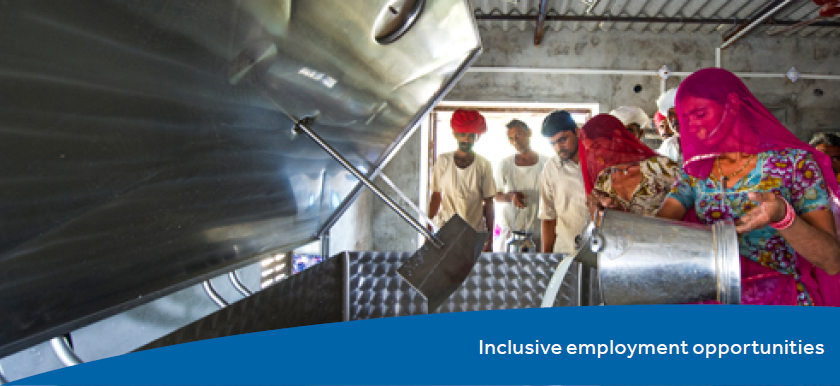
The DD&AH initiative provides the community with a platform to enhance their income through improved ways of livestock management. The programme includes doorstep delivery of medical care for livestock, regular awareness and capacitybuilding sessions on cattle upkeep, skill development on allied activities, linkage with government initiatives and so on. Dinesh was desperate to increase his family income, but he could never convince himself to be a part of the project, because the village dairy committee’s secretary belonged to a scheduled caste.
Cairn, in partnership with SURE Sansthan (non-profit partner of the programme), helped him change his views on casteism. Today, Dinesh is an active member of the committee, and has expanded his business by being a regular supplier of cattle milk to the dairy. Besides, his knowledge on green fodder production, animal husbandry, and other livelihood allied activities now helps his family earn a decent income. His wife too is a part of the women’s group, doing tailoring activities for additional income.
Dinesh has a progressive worldview today, and his children are receiving decent education. He has many plans for the future, and he knows for sure that Cairn will always support his ambition in letter and spirit.
Bringing smile to the last mile
We, at Cairn, think that small outreach initiatives for the community goes a long way towards empowerment at the grassroots. This conviction has inspired us to set up community helpdesks across six villages of our operations across Gujarat. Our role is to conduct a detailed mapping of villages to identify areas where intervention is required and act as a bridge to connect the last-mile citizens like Sadhu Manhulabe Farshurambhai with government schemes and support measures.
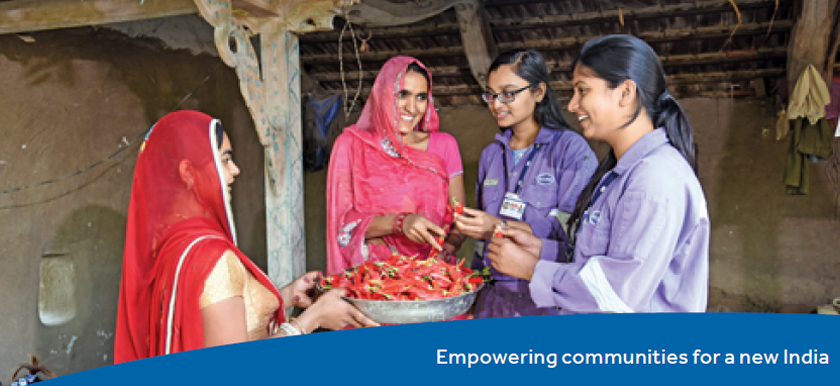
Farshurambhai, 65, of Hansalpur village, was finding it difficult to make ends meet after her husband, who was the only breadwinner of the family, died. Her failing health made matters worse for her. The Cairn HelpDesk team provided her with information regarding the benefits of multiple government schemes and how to take advantage of those. Today Manhulaben is a beneficiary of ‘Vidhva Sahay Yojana’ which provides direct cash transfers to the underprivileged.
The financial assistance from the government, she says, is a security blanket to fall back on in times of stress. We have so far helped 1,500+ community members across our intervention areas, and this is just the beginning.
During FY2021, we lost eight colleagues to work-related accidents. It is a stark reminder for us to strengthen and improve our safety management systems, as one life lost is one too many.
This was a matter of grave concern because within the same period, we had invested heavily in several systems and standards, which were introduced to ensure a safe, injury-free workplace. To understand the rationale behind this anomaly, the Group ExCo along with our Group HSE teams went on to analyse the situation and developed a way forward.
As a part of our continuing safety initiatives, the following three areas deserve mention:

Proactive leadership
Continuous interaction between leaders and support personnel on safety issues, leading to hands-on safety interventions.

Delegation of safety-critical tasks
Safety-critical responsibilities are identified and delegated with proper monitoring mechanism in place.

Safety engagement with partners
Long-standing business partners are properly informed about safety initiatives undertaken by Vedanta, and project-specific business partners are managed through efficient supervisors.
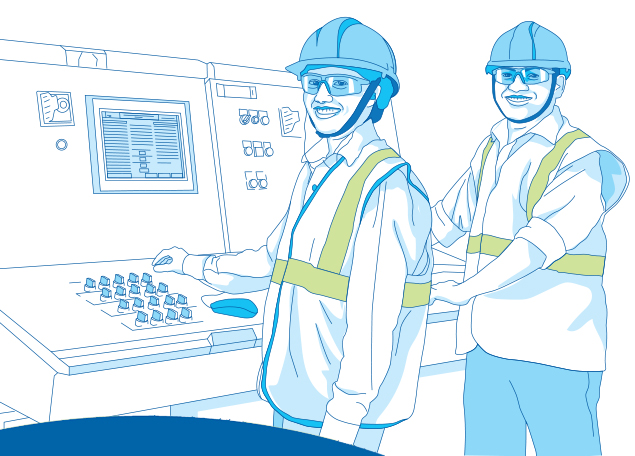
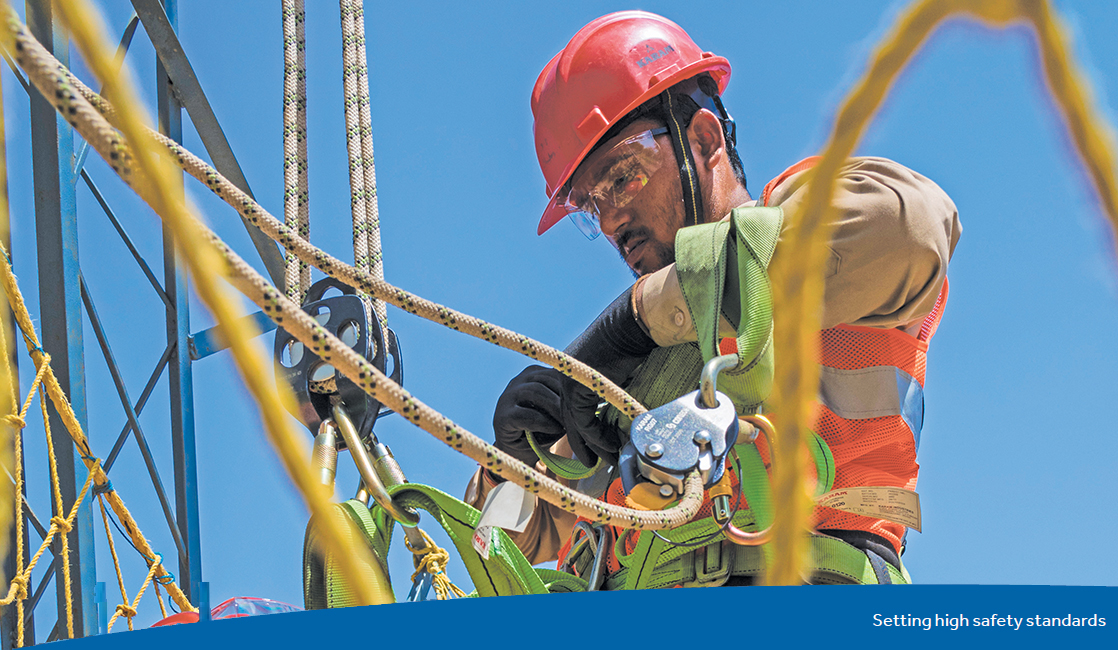
Our safety performance
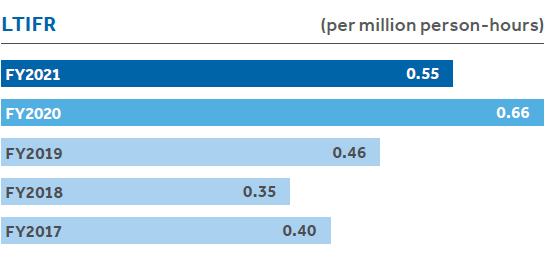
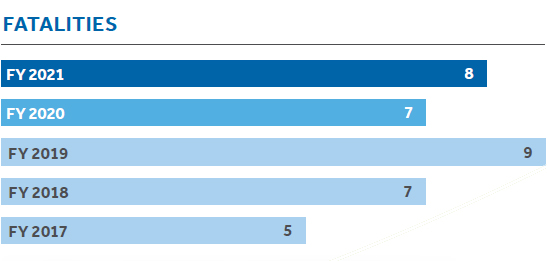
UN SDGs and target linkage

Goal: SDG 8 –
Economic growth &
decent work for all
Target: 8.8 - Protect labor rights and provide safe work conditions for all
Giving back to the community, society and country in various ways is part of Vedanta’s larger purpose. We are committed to working for the greater good, towards national prosperity and for sustainable growth. During the pandemic Vedanta was among the few companies who rose to the occasion and supported the nation through various initiatives such as distributing food packets for daily wage earners, manufacturing of masks and PPEs, food for animals, and so on.
Ensuring health, safety, environment and sustainability continue to be our core focus area. To combat the pandemic-induced health and security concerns of our people, we created a central COVID taskforce with a mix of passionate young leaders and experienced senior leaders. The taskforce is focused on implementing strong control measures across the Group, which includes the launching of Apollo 24*7 healthcare helpline, digital portal for tracking the cases across the Group, wellness webinars and regular communication on precautions and preventive measures with all our people through the Vedanta Cares initiative.
We also introduced the Vedanta Term Life Insurance Policy (providing financial protection equivalent to five times of annual salary) with world-wide coverage of all our executives across the Group. Amid the pandemic, this was the most important initiative launched for our employees. This benefit is over and above the Mediclaim and Group Personal Accident Insurance Policies currently being provided by the Company to support the employees in emergencies.
Our employees also receive consistent recognition from our Management and Board for their extra mile efforts. These include the Chairman Individual Awards, Chairman Awards for COVID-19 efforts, Chairman Award for Business Partner and Best Performing ManCom and Chairman Discretionary Award.
STREAMLINED MANAGEMENT
Management Committee:
Vedanta introduced the concept
of Management Committee
(ManCom) for the organisation’s
apex leadership. Our businesses
are now being run by a Group of
6-8 people of the Management
Committee comprising the CEO,
CFO, CHRO, CCO, CMO and
other key leaders. Our ManComs
work as a cohesive team and are
the top decision-making body
for the respective businesses,
functions, and the Group, while
ExCos (Executive Committee)
serve as a review body. Currently,
we have one Group ManCom which
is the central decision-making
body with eight members and ten
Business ManComs. The SBUs are
still managed by their respective
ExCos. The same concept has been
extended to functions as well with
13 Functional ManComs in place and
each function is divided into verticals
with a vertical head identified to
ensure accountability and delivery.
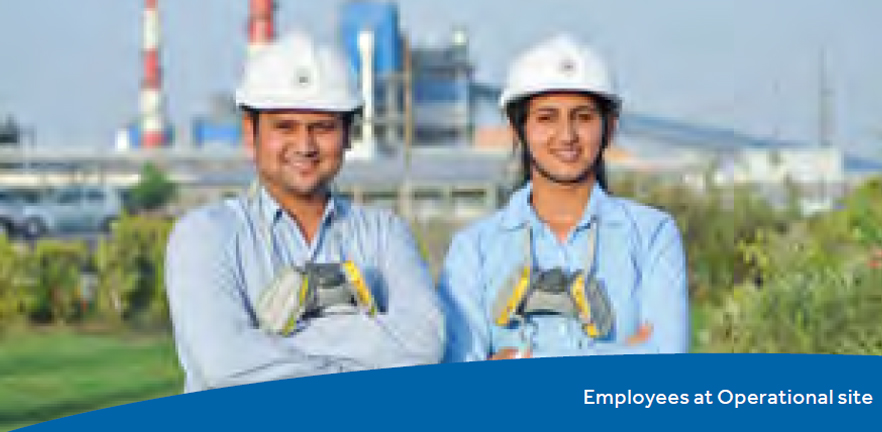
Integrated Commercial and
Marketing Organisation:
At Vedanta, we continuously assess
our organisational structure to
ensure right Management in Place
(MIP). We redesigned the way
we look at our commercial and
marketing functions and created
an Integrated Commercial and
Marketing Organisation under
the leadership of the Group Chief
Commercial Officer and anchored by
the Managing Director Commercial &
CEO Aluminium & Power.
We embarked on a series of Commercial & Marketing Workshops to identify 100+ leaders in the largest ever talent identification exercise through a series of structured Vice Chairman’s Internal Growth Workshops. The new team will work with a clear objective of enhanced margin protection, build category expertise, benchmarking and datadriven decision-making, backed by technology and digitisation. The focus will be on buying and selling within the Indian subcontinent to foster national growth.
Project organisation design:
We have a large number of highimpact
brownfield projects that
are being implemented across the
Group to significantly drive volume,
unlock value and accelerate growth.
This is also part of our endeavour to
help our nation revive the economy
and infrastructure development,
capex spending and foreign direct
investment (FDI). To drive this transformational agenda, we have
embarked on a series of Project
Leadership Workshops to identify
the next set of project leaders.
These workshops have helped us
identify 16 heads of various key
projects across the Group, who
have taken up enhanced roles to
drive our growth vision.
DIVERSITY AND INCLUSION GO HAND IN HAND
Diversity is a business imperative, as much as it is about fairness and the right thing to do. The Group benefits significantly from the skills, experience, and perspectives of the wide range of people who work with us. Our objective is to achieve gender parity across all levels, starting from our Board to ManComs / ExCos and all decision-making bodies. We constantly review our organisation design and talent mix to ensure a healthy representation of women at all levels in the organisation.
Empowering women for an empowered tomorrow
At Vedanta, we have put in place a comprehensive, time-bound process to develop a robust pipeline of women leaders across the Group. The benchmark HR programme (V-lead) underlines the Group’s strong commitment to diversity and inclusion.
As part of the initiative, a Group of promising young women will be identified, nurtured, and promoted to adopt greater responsibilities in CXO positions in future, spanning operational and enabling roles at Vedanta’s business units in India and the overseas. The entire programme is likely to be completed between six and 18 months, as the broader objective is to elevate and retain talent.
Our journey commenced with 55 women leaders, out of 1,000 women employees in various business units and functions across 10 businesses and operations. This includes an interesting mix of women leaders from enabling functions such as Commercial, Marketing, Finance, HR, IT, PR/CSR, Legal & Strategy and Operations, such as HSE, AO, Security, and Core Operations.
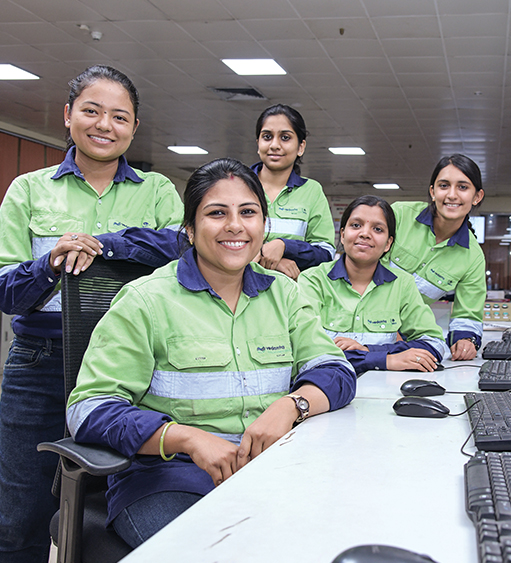
The eligibility criteria comprised the following:
Following their selection, the Vice Chairman had a detailed interaction with these aspiring leaders. These women are being trained to take on higher CXO roles as part of Top 200 leaders in the Group. The idea is to ensure that they represent a part of the decision-making bodies of the Vedanta Group, namely ManCom and ExCo.
A minimum of five women will be given higher roles and responsibilities on a quarterly basis.
This will ensure higher visibility, exposure and fast-track career progression through their enhanced and elevated roles. Anchoring the programme are senior leaders of the Group and each anchor has been assigned five to six women leaders as mentees.
We will continue to implement more such programmes to encourage women to demonstrate their grit and talent and take on larger responsibilities.
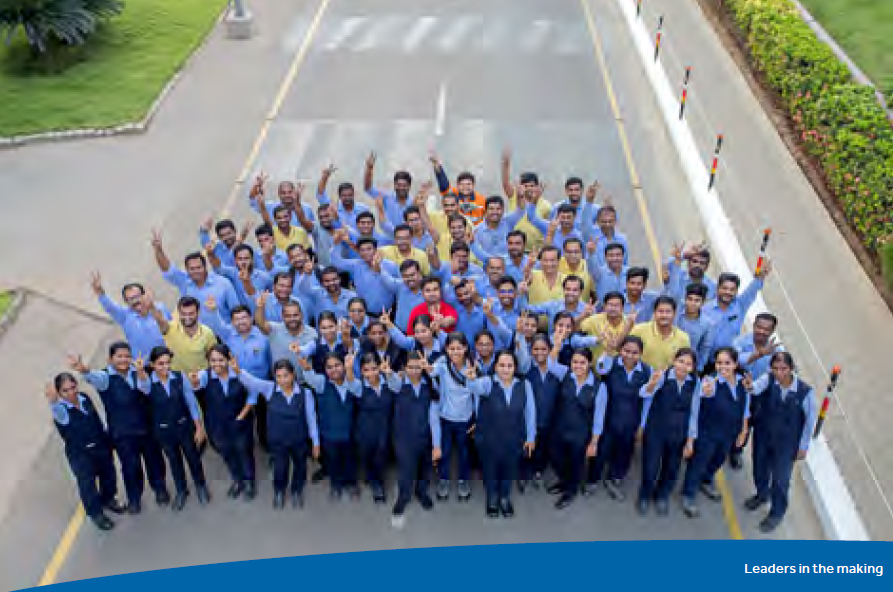
TRANSFORMATIONAL INITIATIVES
Vice-Chairman’s SBU engagement
workshops:
The key idea behind this
transformational initiative was to
connect with SBU Heads / ExCos
to engage, energise and generate
ideas / suggestions around key
themes such as Management in
Place and Business Vision, Volume
& Cost, HSE, CSR and Community
Relations, People Development,
Technology & Digitalisation,
Innovation & Benchmarking, Quality,
Security & Housekeeping etc.
Through this structured initiative,
we have covered 16 SBUs and have
engaged with 1,200+ executives. The
businesses have acknowledged that
the Vice Chairman’s Engagement
Workshop helped them in: a) moving
in the right direction; (b) each SBU
has already started working on the
key action points which emerged
from the engagement; (c) since the
workshops happened during the
current COVID times, it helped build employees morale and performance
focus; (d) engagement with
business partners helped in quality
assessment.
Leadership succession planning:
We concluded the largest ever
exercise of Leadership Succession
Planning. The initiative aims to
create a three-level succession slate
for the COOs for key businesses
in the Group. The objective was
to identify 10 COOs and 30 three
level successors for each COO
through internal job posting (IJP) and
handpicking high-quality leaders.
This is a continuous process, as we
continue to identify successors for
other CXO positions such as deputy
for CHRO and CFO positions for each
business.
360-degree feedback mechanism:
This initiative was launched to get
a comprehensive assessment of
the organisation’s key leaders. It
will help the leaders in identifying
strengths and improvement areas for effective leadership and address
the improvement areas through a
comprehensive developmental plan.
The key leaders from Group ManCom
to ManCom and ExCo members of
each business will undergo the same
leadership development journey.
ONBOARDING TALENT
As part of our overarching initiative to onboard talent through campus hiring from esteemed institutions, we inducted 1,000+ young professionals in India with focus on diversity. We have put special focus to induct talent from the North-East, J&K region and minority communities. As a proactive measure, we have introduced premium salary for rank holders in few categories, and they will be offered front-line decisionmaking roles. We are also inducting specialised talent from new-age programmes such as digital, data science & analytics, quality, R&D, sustainability, forensics, and so on.
Vedanta Leadership Development
Programme:
Continuing our practice of hiring
young talent and developing
them to take up higher roles and
responsibilities in the organisation,
we started the Vedanta Leadership
Development Programme (VLDP)
for hiring from top IITs and IIMs. Over
the preceding four years, we have
hired 100+ management trainees
from top three IIMs and XLRI and
graduate engineer trainees from top
six IITs.
Our high-potential talent is provided with high-impact frontline roles. At the end of these workshops, we rotated them into elevated crossfunctional roles to provide them with maximum exposure and train them to take up CXO roles at our businesses within the next six-eight years.
We are promoting campus hiring with focus on gender diversity, upliftment of minority communities and adequate representation of all regions and demographics in India.
LEADERSHIP DEVELOPMENT
As part of Vedanta’s DNA, we focus on continuous identification and talent development. Over 1,000 leaders were identified through workshops, V-Reach, IJP and Act-Up programmes.
FACOR Leadership ACT UP:
FACOR (Ferro Alloys Corporation
Limited) which was recently acquired,
comprises of chrome mines along
with a fully integrated processing and
captive power plant. FACOR is one of
the largest producers of ferro alloys,
an essential ingredient to produce
stainless steel and specialty steel.
FACOR has tremendous potential
to generate significant value in the growing market. A 2-day ACT UP
(Accelerated Competency Tracking
and Up-gradation Programme)
Workshop was organised with the
objective to identify and elevate
the internal talent at FACOR to
leadership role in order to strengthen
FACOR leadership backbone and
impart Vedanta’s culture and
values for alignment. A structured
process was designed to shortlist
participants from a pool of 600+
employees for the 2-day Workshop
which comprised Group activities,
presentations, and case studies.
50+ new leaders were identified
and elevated to significantly higher
roles across the three verticals
of Captive Power Plant (CPP),
FACOR Power Limited (FPL) and
Mines. Cross functional teams
were formed to foster learning
across verticals and solve complex
problems. A new CSR vertical was
established to stand firm on our
values of giving back to the society.
V-Reach: Graduate Development
Programme:
We have a strong and unwavering
focus on identifying and developing
talent from within. We have a 5,000+
strong talent pool who joined
us as graduates, who represent
the backbone of our businesses.
V-Reach was launched in three
phases to identify top 500 talent
from the graduate talent pool and
provide them elevated roles and
opportunities for fast-track career
growth within the Group. This
identified talent will progressively
take up enhanced roles for adding
fresh perspective and value to
various businesses. We are also
developing a digital solution to
continuously track the progress
of this talent through technology
implementation as we continue to
identify additional set of talent under
this category.
Digital Organisation:
Vedanta has embarked on an
aspirational digital transformation
journey and our vision is to become
a technology-driven company.
With this vision, Digital Act-up was conducted to identify young high potential leaders across various units and functions through the structured ACT UP Workshop model and give them significantly elevated roles and responsibilities and thereby induct the required skillset to provide a digital steer to our organisation.
V-Tech 1.0:
To identify talented engineers and
elevate them to significantly higher
roles, V Tech 1.0 was launched. Over
550 employees spanning the Group
with focus on ensuring diversity
will undergo online psychometric
assessment to result in shortlisting
of top 300 basis the assessment and
360 DF. These leaders will drive
high-impact projects and
innovations, take up leadership roles
across the organisation, leverage
their potential and become brand
ambassadors of Vedanta.
Young Leaders’ Taskforce:
At Vedanta, young leaders are
given a wide plethora of growth
opportunities. We have created a
team of livewire professionals hailing
from diverse backgrounds with focus
on innovation. Their innovative
ideas help us steadily grow volumes,
optimise costs and identify other
key drivers to make the organisation
more agile to protect our margins,
despite market variations.
UN SDGs and target linkage

Goal: SDG 5 –
Achieve gender
equality and empower all women
and girls
Target: 5.5 - Ensure full and equal participation of women in all decision-making in the political, economic, and public life.
Target 5.9- Adopt and enforce policies and legislation on gender equality